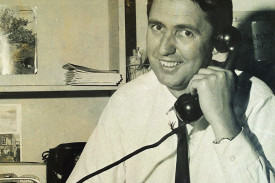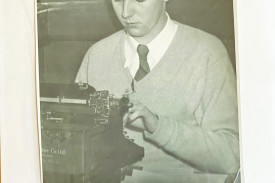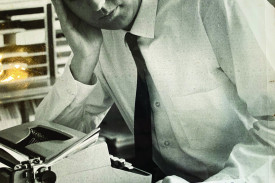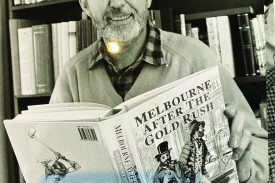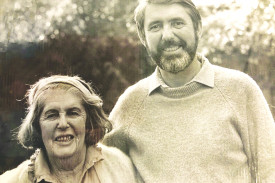General News
4 March, 2022
Renowned journalist with soft spot for Cobden
Cobden always held a very special place in the heart of renowned journalist and author, Michael Cannon, who died last Thursday at the age of 92.
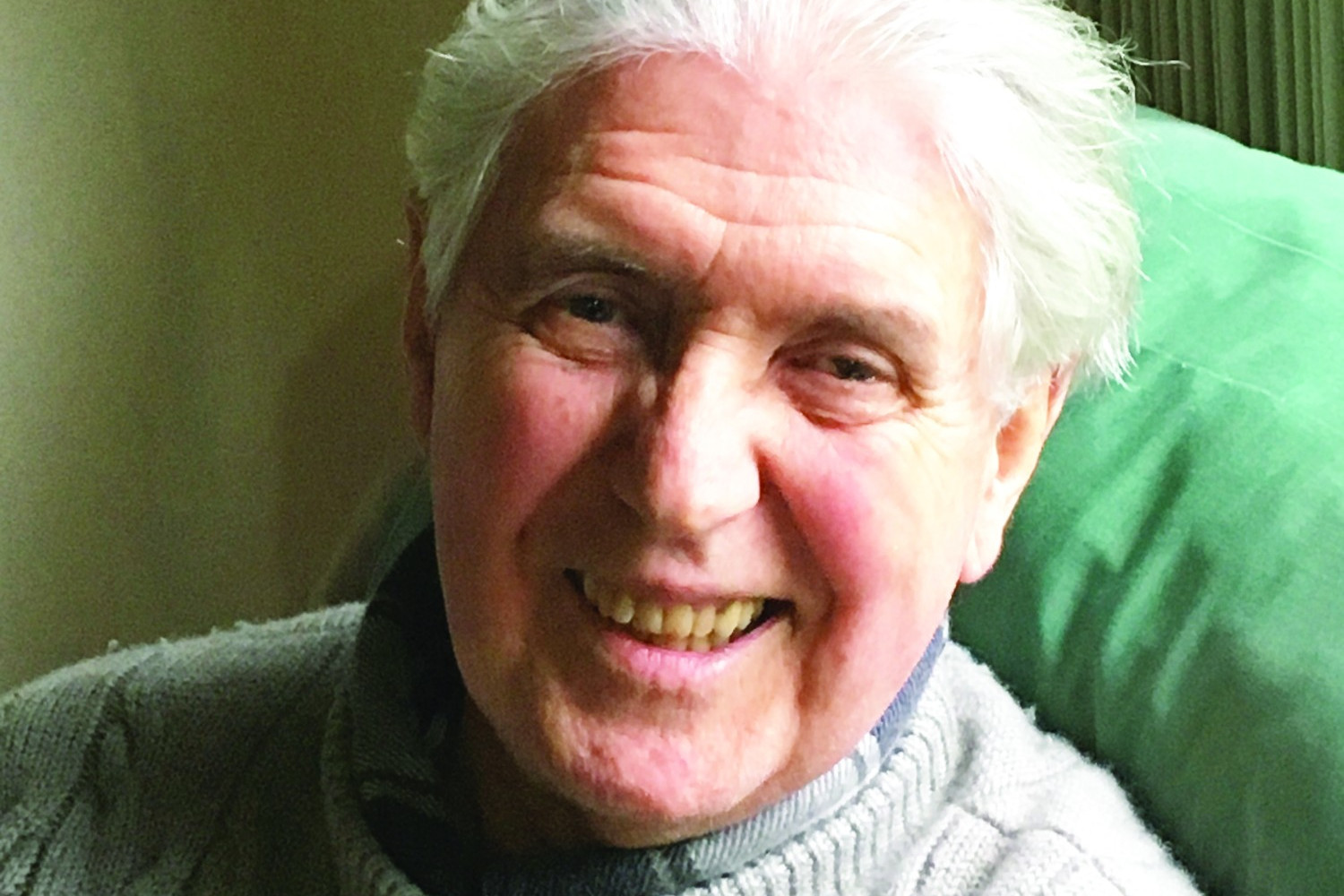
Michael Montague Cannon
1929 - 2022
Cobden always held a very special place in the heart of renowned journalist and author, Michael Cannon, who died last Thursday at the age of 92.
Born in Brisbane in 1929 to parents Arthur and Dorothy (or ‘Dolly’ as she was affectionately known) Michael was raised in Cobden and educated at both the Cobden and Camperdown high schools before attending Geelong College.
While his latter years were spent in South Gippsland, Michael always had a soft spot for his childhood roots according to daughter Sarah.
“Cobden always held a very special place in Dad’s heart,” Sarah said.
“He left the district shortly after school, however, made several return visits to Cobden.”
Michael was raised in a newspaper office.
His parents purchased and ran the Cobden Times from 1930 until 1941 when Arthur went to war.
Around that time, the Cobden Times was purchased by the Camperdown Chronicle and Dolly went on to work for the publication.
At the end of World War II Michael began work as a copyboy on the Melbourne Argus, then as a cadet journalist on the Herald.
In 1948 he sailed to England to work with the London staff on the Sydney Morning Herald.
After studying the operations of the fledgling BBC television series, he wrote a book-length series for the Radio Times on the glowing future of television.
After his return to Melbourne, Michael worked as a senior reporter on The Age.
In later decades he wrote many articles and book reviews for the paper.
In 1955 he became founding editor of the Australian edition of Family Circle (a monthly magazine based on the popular American original).
Early in 1959 he sold his magazine interests and purchased a news magazine called Newsday.
His first wife Susan tragically died towards the end of that year, and Newsday ceased publication.
The following year he was appointed associate editor of the Sydney Sunday Mirror and worked hard to change what was then regarded a brash tabloid, into a quality newspaper.
The result was a severe loss of circulation and after a dispute with its proprietor (Rupert Murdoch), Michael returned to Melbourne.
During the 1960s he began a new career, researching his first book as well as working as a bookshop manager and associate director of Melbourne University Press under Peter Ryan.
One of several people writing as ‘The Melbourne Spy’ he frequently contributed to the Sydney journal, Nation.
In 1969 Gordon Barton (a Sydney-based political activist) attempted to break into the media world by backing Melbourne’s first professional Sunday newspaper, the Sunday Observer.
Michael was appointed founding editor and also founded the Sunday Review.
Both papers lasted several years, but when the radical push of the anti-Vietnam crusaders died away, and Barton’s funds were exhausted, each paper changed ownership or ceased publication.
Michael enjoyed historical writing and wrote 20 books under his own name and edited another 15.
In terms of sales, his most successful book was ‘The Exploration of Australia’ in 1987 – 70,000 copies were sold in three hardback editions.
‘The Land Boomers’ has sold more than 40,000 copies in various editions (and is still in print) and ‘Australia, Spirit of a Nation’ went through three hardback editions with more than 30,000 copies sold.
In 1978 Michael was commissioned by the Public Record Office of Victoria to research Victoria’s early years of European settlement.
This culminated in the publication of the unique nine-volume ‘Historical Records of Victoria’ between 1981 and 2002.
In recognition of his years of writing and publishing, he was presented with the Australia council’s Emeritus Award by Prime Minister Paul Keating in 1996.
Michael used to joke that “it was presented to him for wasting his life writing and publishing more than 30 historical books, instead of doing something useful with his life.” “But he was only half joking.
All his life he was conscious of uncommon good fortune in being able to devote his best years to the writing of popular history.
“With little formal education and no academic qualifications, dad said he felt that history should be mostly about people, not politics or sociology,” Sarah said.
Two years after receiving the award, Michael completed his last major work, the ‘inside story’ of law firm Slater and Gordon.
He then bought a farm near Foster in South Gippsland, where he spent 10 years planting thousands of trees and restoring the environment to its original bushland.
He retired to Inverloch at the age of 80.
His personal papers are now held in the National Library in Canberra, and his research papers at the Royal Historical Association of Victoria.
Michael’s memoir, ‘Cannon Fire: A Life in Print,’ will be published in September.
Michael is survived by his four children, Paul, Sarah, James and Patrick, numerous grandchildren and his sister Dina Monks.
